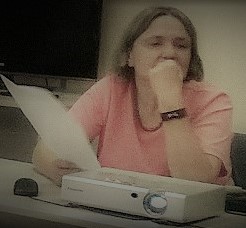Puzzlement; What is the relationship between popular books and purloined books?

Our most purloined book is How to Improve Your Foreign Language Immediately by Boris Shekhtman. I find it on various sites, completely stolen in spite of \evident copyright (and often no way to contact the thief to send a cease-and-desist letter -- hopefully, some of the publisher associations working on this issue that plaques all authors and publishers will find some effective solutions). Usually a bad copy, i.e. heard to read. Our most popular book is How to Improve Your Foreign Language Immediately , outselling some of our books 9:1 and our next bestselling book 2:1. Are these sales numbers in spite of the purloining or, ironically, thanks to the purloining (e.g., purchasers wanted an easier-to-read copy, the purloiners brought the book to the attention of potential readers who would not otherwise have known about it)? I suppose we will never know the answer as to whether the book benefitted from or was harmed by the thefts. It will be so helpful for professional organizatio...





